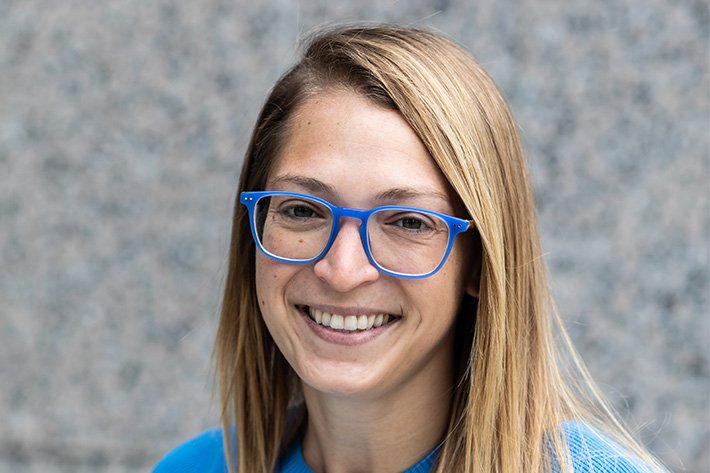Michelle Calabrese selected for UKPPG/DPOLY Polymer Lecture Exchange

Assistant Professor Michelle Calabrese has been selected by the Division of Polymer Physics (DPOLY) of the American Physical Society (APS) and the Polymer Physics Group of the Institute of Physics in the United Kingdom (UKPPG) for the 2023 UKPPG/DPOLY Polymer Lecture Exchange. She will serve as the DPOLY representative to the UKPPG and present her research at the 2024 UK Polymer Physics Group Physical Aspects of Polymer Science Meeting on September 11–13, 2024 in Edinburgh, Scotland. Established in 2009, the UKPPG/DPOLY Polymer Lecture Exchange honors faculty members in the early stages of their careers.
In just over three years on the faculty at the University of Minnesota, Calabrese has built an impressive group of eight graduate students (including five NSF Fellows) and has mentored or co-mentored six postdocs and 19 undergraduate students. She has raised prodigious amounts of research funding (National Science Foundation (NSF) Career, National Institute of Health (NIH), Amerian Chemical Society Petroleum Research Fund (ACS-PRF), Dow Chemical, 3M, as well as full “membership” in the National Science Foundation's Materials Research Science and Engineering Centers (MRSEC) and National Science Foundation Centers for Chemical Innovation (NSF-CCI) Center for Sustainable Polymers (CSP). Her work at Minnesota has already generated 11 publications in print, with many more in various stages of submission and preparation.
Calabrese has recognized the vital importance of creating injectability and flow stability of polymer-based therapeutics, including protein-based systems and gels. Furthermore, the extensional component of flow is generally by far more damaging than shear, and so quantification of the extensional flow response of these delicate formulations is essential. Furthermore, Calabrese's research has broad scope in self-assembly and processing of polymer composites and micelles, including rod-like particles (J. Colloid. & Interface Sci., 2022) and worm-like micelles (Langmuir, 2021), both of which exhibit fascinating non-linear rheological profiles. Most interestingly, she has been exploring the use of magnetic fields to influence self-assembly, but not via the established alignment of anisotropic domains with magnetic susceptibility contrast.